An overview of selected new books in Szilárd Library, with a word from their authors, reviewers and publishers

By Theresa Levitt
At a time when the boundaries between scientists, salesmen, and charlatans were as blurry as productive, Levitt describes how investigations about health and hygiene were inseparable from the desire to smell good. The laboratories that gave us modern chemistry were not places where the disturbances of the outside world were kept out, but rather where they were welcomed in to be distilled and repackaged in their most intoxicating form. This highly original work shows us that scientific truth is not only messier than we have previously considered it to be―it is smellier.
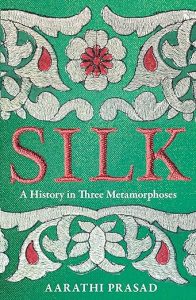
By Aarathi Prasad
From the moths of China, Indonesia and India to the spiders of South America and Madagascar, to the silk-producing molluscs of the Mediterranean, Silk is a book rich in the passionate connections made by women and men of science to the diversity of the animal world. It is an intoxicating mix of biography, intellectual history and science writing that brings to life the human obsession with silk.
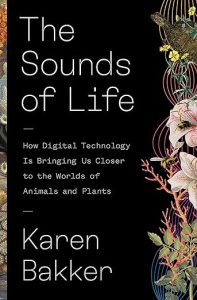
By Karen Bakker
The Sounds of Life is an ode to the symphonies below our feet, hidden in the skies and beneath the water, and singing to us across hills, valleys, and forests. Come encounter how the best of science can listen in to our planet and help us become the ancestors future generations need us to be.
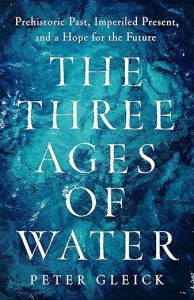
Edited by Peter Gleick
Gleick has delivered a book that provides a rich story of humanity’s interaction with water through a lens that helps us understand where we are today as we strive to balance all the demands we place on the planet’s water resources. His context of the past points to a future path that can ensure we strike this balance so everyone has access to water as a basic human right. The additional payoff is this book is accessible to all because of the way Gleick unfolds the story. It is a hopeful call to action grounded in fact, research, and analysis.
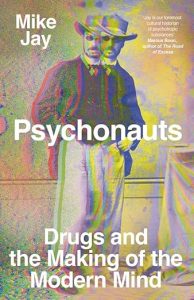
By Mike Jay
Jay is a leading expert on the history of Western drug use, and Psychonauts is the latest in a series of excellent studies in which he has investigated the roots of a kind of psychoactive exploration that we tend to associate with the nineteen-fifties and sixties.
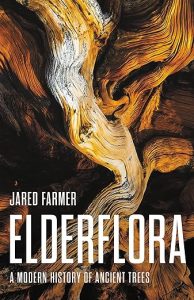
By Jared Farmer
Jared Farmer has given us a stunning, globe-spanning, deep-time history, one that is also moving and intimate: a story of ancient trees in all their beauty and complexity that is also a story of how we imagine the best and worst of ourselves. From the hills of Lebanon to the trails of Sequoia National Park to Polish old growth, Elderflora transports us, and asks us to seek a better world for trees—and ourselves.
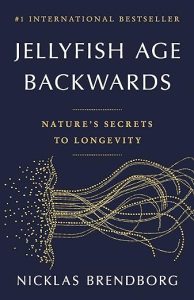
By Nicklas Brendborg
Human aging is so dull. Some species are effectively immortal, others induce suspended animation, others age backwards. And all we do is senesce, so that everything from our minds down to each cell becomes more fragile and less resilient. Nicklas Brendborg accessibly guides the non-scientist through the science of aging and what’s known about making it slower and gentler (along with judiciously debunking the ample pseudo-science). All written with a fun, appealing voice, making for a surprisingly upbeat read.
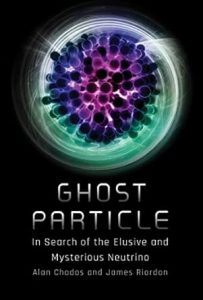
By Alan Chodos, James Riordon
In the time it takes to read this blurb, over 500 trillion neutrinos will pass harmlessly through your body. This readable and informative book will introduce you to state-of-the-art particle physics and some of the biggest mysteries of the universe.
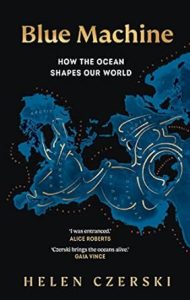
By Helen Czerski
Physicist Helen Czerski dives deep to illuminate the murky depths of the ocean engine, examining the messengers, passengers and voyagers that live in it, travel over it, and survive because of it. From the Ancient Polynesians who navigated the Pacific by reading the waves, to permanent residents of the deep like the Greenland shark that can live for hundreds of years, she explains by way of vast currents, invisible ocean walls and underwater waterfalls how all have their place in the oceans’ complex interlinked system.
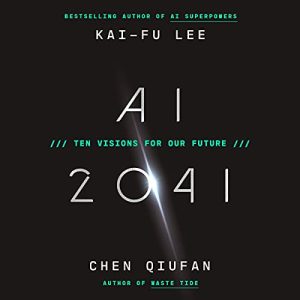
By Kai-Fu Lee, Chen Qiufan
By gazing toward a not-so-distant horizon, AI 2041 offers urgent insights into our collective future – while reminding listeners that, ultimately, humankind remains the author of its destiny.









